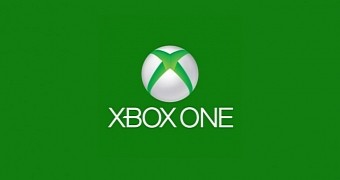The head of Microsoft's Xbox division, Phil Spencer, is apparently lending an ear to the woes of independent video game developers, and is planning to rethink the infamous Xbox One release date parity clause.
Recently, Phil Spencer defended the Xbox One parity clause that requires video game makers to release their games at the same time they do on other platforms on Microsoft's consoles too, which many indie devs have decried over time.
Spencer said that the clause was there in order to make Xbox One users feel like "first-class citizens," and to prevent other gamers from gloating that their platform got the game first. Although his stance is understandable from the point of view of a soulless corporation that won't stand for being second in line for anything, the arrogant and egotistical demand translates into many games never making their way to the Xbox 360 or Xbox One.
Many think the clause is there in order to forcibly make the Xbox important
In theory, studios can work on developing PlayStation and Xbox versions of their games at the same time, but in practice, many people actually need to pay rent and eat, which means that small, self-funded studios have to release a game as soon as it’s ready, in order for it to start making money.
Many developers and gamers see Microsoft's stubbornness as damaging for everyone involved, as a bad decision as far as the health of the Xbox ecosystem is concerned, since a lot of studios simply don't have the resources needed to satisfy it and opt to forgo the platforms altogether.
Gamers are requesting for the Xbox One parity clause to be retailored
Phil Spencer's clarification and the decision to stand behind the parity clause did not go down very well with the community, and sparked a pretty heated debate on NeoGAF.
"Classism? That's just great...Hasn't history proven that Marx's vision of an egalitarian utopia is unattainable, inevitably creating an oligarchy more oppressive to the proletariat than the bourgeoisie it vilifies?," one of the commentators humorously states, showing how vacuum logic translates into faulty real-world systems.
The clause did, presumably, cause a lot of developers to hold off on releasing the PlayStation versions of their games until the Xbox One was ready to go, so that's what Microsoft is probably gunning for.
While the clause would theoretically enable Microsoft to cherry-pick the best indie games out there and not cast the burden of choice on its customers, the truth is that many devs are simply focusing on the PlayStation 3, PlayStation 4 and PlayStation Vita platforms instead of agreeing to the bullying terms.
The ID@Xbox program is already doing a lot of good for small developers, and Microsoft has been showing increased support for indies, mainly through the fact that it readily aids developers with Xbox One dev kits, making the whole development and self-publishing process much more accessible.
In view of the mounting feedback from the community, Spencer has agreed to rethink the way the company approaches the issue of games coming to the Xbox One after having been released on other platforms.
@ReRixo I see the feedback on my stance on the clause, I want to rethink how we approach this, responses are heard.
— Phil Spencer (@XboxP3) October 9, 2014

 14 DAY TRIAL //
14 DAY TRIAL //